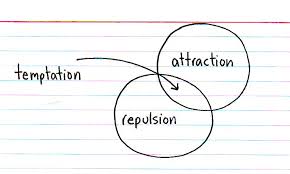记忆方法
将“digression”联想为“dig”与“gression”,想象一个人在挖掘(dig)了一个洞,但洞的轨迹(gression)偏离了原来的目的或方向,这就形成了一种离题或跑题的“digression”。
以上内容由AI生成, 仅供参考和借鉴
英语词源
- digression (n.)
- late 14c., from Latin digressionem (nominative digressio) "a going away, departing," noun of action from past participle stem of digredi "to deviate," from dis- "apart, aside" (see dis-) + gradi "to step, go" (see grade (n.)).
权威例句
- 1. The audience cried the speaker down as soon as he started on a third digression.
- 当发言人第三次扯到题外去时听众发出喊声,使他讲不下去.
- 2. All this is a digression,'he added in a different tone.
- 不过这都是题外话. ” 他又换了口气说.
- 3. Now let's return from this digression to our subject.
- 现在咱们言归正传。
- 4. After this digression we return now to our original problem.
- 在这一段插话以后,现在回到原来的问题.
- 5. At this moment, thoughts of Celia were a digression.
- 此时此刻关于西莉亚的念头让人走神.
